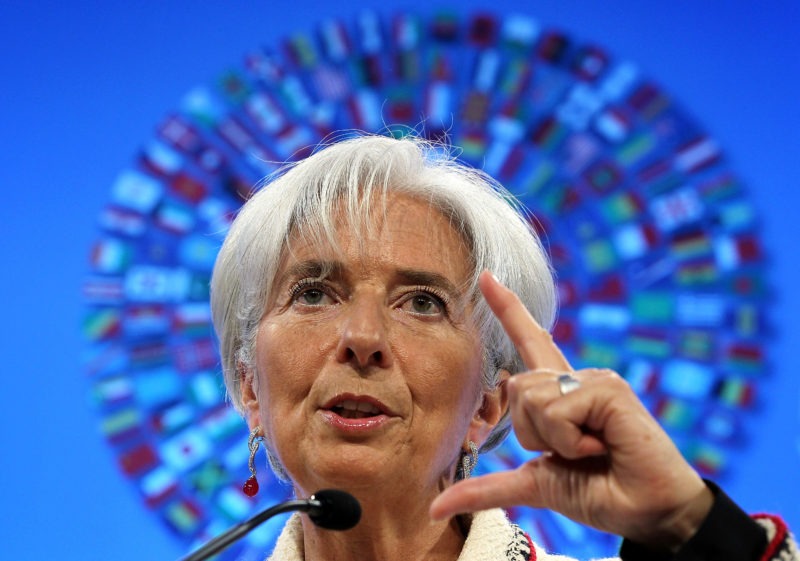Lagarde signals plan to stick to Draghi’s ECB expansionary path
Early signs are that she will not rock the ECB boat (ALEX WONG)
Frankfurt am Main (AFP) – The ECB’s next chief Christine Lagarde signaled Thursday that she would stick with Mario Draghi’s controversial expansionary monetary policy that has propped up the eurozone economy amid growing risks to growth.
In a written reply to queries from the European Parliament, Lagarde underlined that inflation has remained stubbornly low in the bloc while growth was stalling.
“It is therefore clear that monetary policy needs to remain highly accommodative for the foreseeable future. The ECB has a broad tool kit at its disposal and must stand ready to act,” wrote Lagarde.
“While I do not believe that the ECB has hit the effective lower bound on policy rates, it is clear that low rates have implications for the banking sector and financial stability more generally,” she noted.
Over his eight years in office, the ECB’s incumbent chief Draghi has brought interest rates to record lows and unleashed billions of euros in quantitative easing to ward off the threat of deflation and drum up growth.
But with the prospects of growth dimming once again, and with Europe’s biggest economy Germany on the brink of a recession, Draghi said at the ECB’s last monetary policy meeting in July that the bank could fire off a new stimulus package and slash rates further.
Draghi’s ultra-expansionary doctrine is however not without its critics.
– Too soon to act? –
Dutch central banker Klaas Knot told Bloomberg on Thursday that he did not think a new quantitative easing package was necessary at this juncture.
“If deflation risks come back on the agenda then I think the asset-purchase programme is the appropriate instrument to be activated, but there is no need for it in my reading of the inflation outlook right now,” he said.
Knot’s stance echoes Bundesbank chief Jens Weidmann’s view, who in an interview published Sunday by the Frankfurter Allgemeine Zeitung warned against launching new stimulus measures out of “panic” or simply for the sake of taking action.
Draghi’s policy has proved particularly hard to swallow in Germany as the nation of savers has seen its holdings stagnate in banks.
But the Italian central banker has argued that the ECB could not sit back and wait for economic conditions to worsen before acting, setting the stage for new action at central bankers next meeting on September 12.
Surveys have for months pointed to an economic slowdown in the second and third quarters from the 0.4 percent growth booked in January-March.
Slower growth in turn threatens the central bank’s target for area-wide inflation which is just below 2.0 percent.
In June the figure came in at 1.3 percent.
Besides growing fears over US-led protectionism, the economic mood in the bloc was also dampened by the looming exit of Britain from the European Union.
The danger of a no-deal Brexit has also intensified, with Boris Johnson as Britain’s new prime minister.
Lagarde voiced confidence however that “EU authorities, including the ECB, have prepared for” a hard Brexit.
“Overall, I am confident that the measures taken so far have limited the impact that the UK’s departure from the EU could have on access to financial services in the euro area,” she said, adding however that companies should still use the time leading up to the deadline of October 31 to get ready.
Disclaimer: Validity of the above story is for 7 Days from original date of publishing. Source: AFP.


